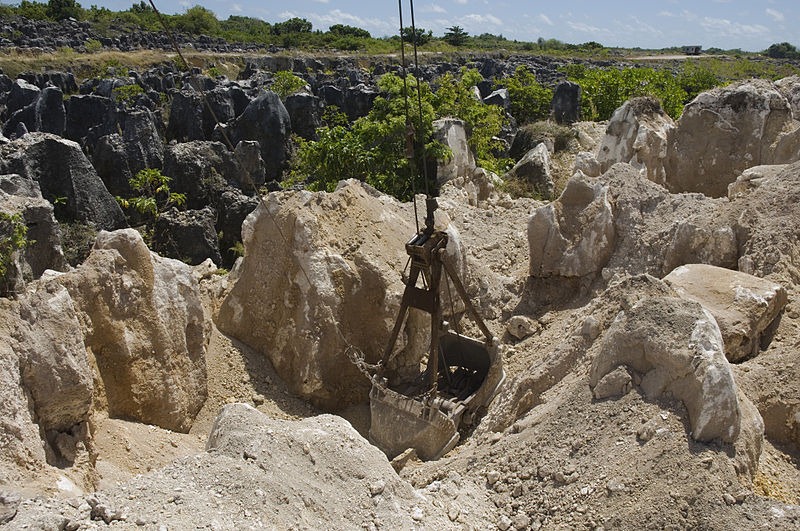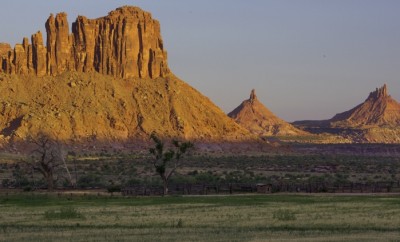Cultures
What an island that ran on bird poop tells us about a post-oil world

Image: Flickr
Economists have a term for what happens when an economy relies on natural resources. It’s “the resource curse,” and it describes an economy that relies entirely on the extraction of a single lucrative product, often oil. Usually, a country that runs on such huge flows of quick cash tends to develop a whole host of problems from corruption to an under-developed infrastructure.
Politicians siphon off money from the sale of that resource and use the remainder on social programs designed to keep their population complacent while they rob the country blind. When the resource runs out, they are no longer able to mask the problems in the country and the economy collapses.
Though we’ve seen the resource curse play out in many oil-dependent economies, there is one tiny nation in the pacific that might demonstrate the effects of the resource curse better than anywhere else.
Nauru is a micro-nation off the coast of Australia. For decades, it rode a rich natural resource deposit to economic prosperity. That resource wasn’t oil, though. It was bird poop.
Or more specifically, it was guano, which is a substance formed from generations of animal droppings. Rich in nitrates and phosphorus, it is used for everything from gunpowder to fertilizer. And for a long time, Nauru had one of the richest deposits in the world.
The phosphate mines that made Nauru rich were the results of thousands of years of migrating seabirds nesting on an island that is a third of the size of Manhattan. And the mining of guano made the few thousand residents of Nauru some of the richest in the world in terms of GDP per capita.
But that nominal wealth came at a serious environmental cost for the island, as ninety years of strip-mining ravaged the island. James Aingimea, a church leader on the island, described the devastation to the New York Times this way, “I wish Nauru could be like it was before. When I was a boy, it was so beautiful. There were trees. It was green everywhere, and we could eat the fresh coconuts and breadfruit. Now I see what has happened here, and I want to cry.”
Today, the Nauruans reap little benefit from the mining that destroyed their island. Much of the money that the guano brought in was frittered away by the island’s leaders, including $2 million that was wasted on a London musical about the life of Leonardo Da Vinci that quickly flopped.
Their depleted trust fund has led the nation to seek some less than reputable sources of revenue. While the majority of the economy today runs on foreign aid, money-laundering for foreigners has become one of the most profitable ventures on the island. Experts estimate that money laundering had become a trillion dollar shadow economy on the island by the year 2000, placing it squarely at the center of the international criminal economy.
More recently, the island has offered to house refugees detained by Australian authorities in exchange for aid payments, creating a migrant camp on the island that many have demanded be shuttered.
The individual citizens of Nauru don’t see much of this money and poverty and obesity caused by the import of cheap and fatty foreign food are serious problems.
The example of Nauru suggests that oil-dependent economies will likely face some dark times once oil reserves run dry.
In fact, some of those effects may not even require depleted oil reserves, since many have already been seen with the recent decline in the price of oil.
Venezuela saw its economy more or less collapse last year in the wake of falling oil prices, and the shortages of basic goods led to a wave of popular anger that saw the first election of an opposition party in years.
Saudi Arabia was forced to implement tough austerity measures that may similarly strain the political system of a country located in one of the most volatile regions in the world.
And Iraq, which desperately needs cash for its war against ISIS, has seen revenues plummet in spite of producing more oil than ever before.
The Christian Science Monitor estimates that at current rates of extraction, global oil reserves may be exhausted within sixty years.
Meanwhile, for the governments of oil-rich countries, the fate of Nauru may actually represent the most accurate model of what is to come.





0 comments